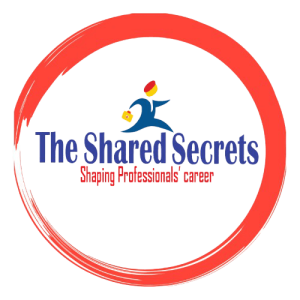What Do Recruiters Look For In A Candidate? Knowing about what recruiters look for in a potential candidate is a great point to start preparing for an interview and crafting a Professional Resume or CV. By presenting a unique profile, an impressive background and professional skills, you might be one step closer to get a job but it’s not enough to land your dream job. To capitalize on an interview opportunity, you need to show more than just the required qualifications, skills and experience to get hired.
So, what do recruiters look for in a candidate? If we know the answer our efforts would be made much easier. But we don’t know the answer because of the very limited information we have. A common misconception among most professionals is that recruiters only look for qualifications, experience and some set of professional skills. This is only one aspect of what recruiters usually look for. Though these are very important but not enough to win an employment contract. The recruiter wants to hire the best talent within available resources.
There are some important interpersonal traits and other components that are always taken into consideration by the recruiters but many job-seekers forgets these components when looking for a job. I am writing down here some significant qualities that every job-seekers have to demonstrate at some stage of their career;
Accomplishments & Contribution:
Hiring managers always value those candidates who have some achievements or accomplishments in their tank and have contributions to the organizations’ success. It’s a common thing mostly we love to have interaction with successful people or professionals who have achieved a lot in their career. Employers prefer hiring those potential candidates who share accomplishments and contributions they made in achieving the organization’s objectives.
Professionalism/First Impression:
First impressions count, make sure you are dressed professional and arrive on time or a little bit earlier. Remember, the interview starts as you step into the interviewer room, so act professionally, pass a nice smile, give a firm handshake and have a pleasant small talk before jumping to a question and answers session. Throughout the hiring process, recruiters look for candidate professionalism, body language and engaging interactions.
Offering Value:
Throughout the recruitment process, hiring managers focus on the value a candidate can offer. Recruiters always emphasize, what they can get from candidates instead of protecting the job-seekers interest. So, during the interview process give priority to the recruiters’ interest and don’t focus more on your interest. Convince the recruiter you have what he is looking for in the potential role. Reassure you can add value to the business and facilitate the employer to achieve objectives.
Express Interest:
Getting a needed candidate for the job is one of the most challenging aspects of the recruitment process. Recruiters want to hear that you’re interested in this opportunity. You have to show your interest in that opportunity, company and company product and services. You should convince your interviewer that you are aligned to take this opportunity.
Communication Skills:
Communication is very important. If you can’t speak fluently, if you can’t express, understand and listen then you can’t win your interview. Every organization would be happy to have an employee on board who is a good communicator. Employees are the face of the organization, they build business relationships, deals with many situations and sell the company product and services that’s why communication is very important. During the interview express well with confidence and show the recruiter that you can be the ambassador of the company.
Thinking about the future/Ambitious:
Recruiters want to hire people who can continuously make contributions to their company. Job-seekers who want to grow their career with the organization can be an investment for the long term. Definitely, the interviewer will ask about your career aspirations and you can express that you are preparing for the future and thinking about your next position, in-demand skills your field may need in the future is by taking classes. You can demonstrate ambition by listing your achievements.
Passion:
Every employer would be happy to have an employee who is passionate about his/her job and the company. Employers need someone who speaks well, attract new clients and acts like a real brand ambassador. You have to show your passion for the job and company business and convince the interviewer that your profession is your passion.
Motivation:
Every recruiter wants a highly self-motivated employee. Remember, you can’t buy motivation, either you have it or you don’t but you can train yourself, how to be motivated. You have to make sure the interviewer about your self-motivation and give him some situation-based examples.
Teamwork:
Every recruiter would be happy to have an employee on board who is a team worker. Having great teamwork among the team always help in achieving the company goals. Great teamwork also helps in building positive and productive relations and making the environment happier. You have to prove that you’re a team player but also can manage and delegate to others and take on responsibility.
Competency/Learning Agility:
Every company need employees who are fully competent in their job duties. A person who can accomplish certain results if clear targets are being set. A person who is also organized to learn new skills to stay up-to-date is always given preference. Convince the recruiter by giving some solid examples about your competency level.
Confidence/Personality:
In the workplace you need to be confident in yourself but not arrogant, you should also have confidence in your boss, colleagues and the company you work for. The interviewer will judge the confidence level by your body language, responses approach, pleasant eye contact and communication. So, be confident during the whole recruitment process. You can be an introvert but don’t be shy.
Flexibility/Ready for Change:
Organizations don’t like employees who like the status quo and are not ready for a change. Every job has some requirements about working hours, working days, travel commitments and job duties. Organizations have specific environments, social values and norms. While having an interview, tell your interviewer that you are flexible and have the ability to adapt to the change.
Leadership by Example:
For senior and management roles, employers want to see that you must have the leading ability. Leading a team is an art because leaders have to delegate tasks and assign roles and duties. A leader has the ability to create a vision for the team and inspire others to work toward it. So, be prepared for this ability and try to convince the interviewer by expressing your leadership approach and you should give some certain examples of demonstrating this ability.
Problem Solving/Analytical Skills:
You need to display an ability to take a rational and analytical approach to solve problems and resolve the issues. It’s also fine to show that you can address problems from different angles. The interviewer can put some situations to test your approach and ask for solutions and even you can give some examples from your past experiences. So, organizations need Someone who can tackle and solve the arising problems and even give some suggestions during certain tasks.
Integrity:
Every boss needs an employee who has a real sense of integrity. Organizations want those who are honest with themselves, with others and who doesn’t have any problems in admitting their strengths and weaknesses. Be open and forthcoming. It’s fine to admit being terminated because of a difference of opinion with your boss, or a culture mismatch and or a mistake with a lesson learned. It happens, everyone makes mistake and confess them. Always maintain confidentiality and be respectful about your former or current employer.
Reliability/Responsibility:
Every employer wanted an employee who could be trusted and relied on in any circumstances. The interviewer will judge you from different angles either you can take responsibility or not. During the job, employees need to make some decisions, need to achieve targets and need to meet deadlines. That’s why organizations need someone who is reliable and can take responsibility.
Business Acumen:
This is about knowing how an organization or industry works and what makes a business flourish. Showing that you have an idea of what the organization wants to achieve through its products or services, and how it competes in its marketplace. This is very important for the managerial level and executive level to have complete business awareness.
Examples/Illustrations:
Recruiters love to hear real-time examples or illustrations in your responses. In the interview, if you claim to be an expert at some areas, back it up with real examples. Make sure to provide facts and figures while discussing your achievements and results. While sharing the current roles and responsibilities, past experience and giving a response to behavioural questions always back your answers with practical illustrations.

